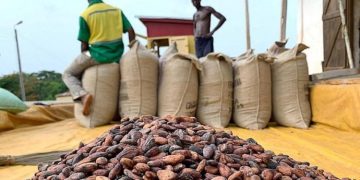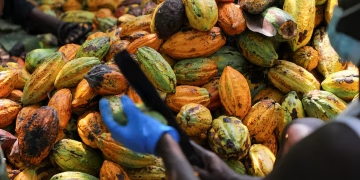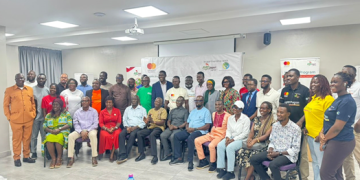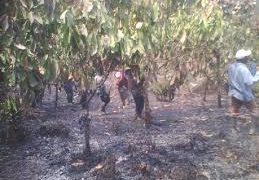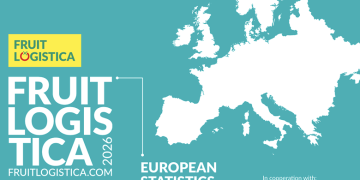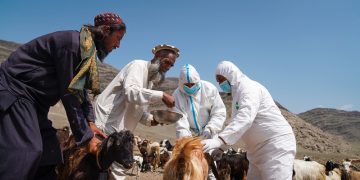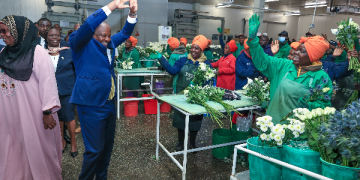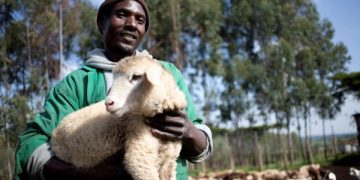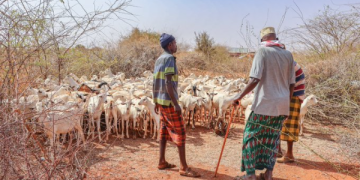Nigeria’s agricultural landscape is witnessing a revolution, driven in part by women leveraging technology to transform farming, improve yields, and reshape agribusiness across the country.
From precision farming to data-driven supply chains, women in agritech are redefining how Nigeria grows, processes, and markets food.
According to the National Bureau of Statistics (NBS), women make up nearly 45 percent of Nigeria’s agricultural workforce but receive less than 20 percent of available funding and support. Yet, agritech is emerging as an equaliser, offering women digital tools to access credit, climate information, and extension services that were previously out of reach.
Limited access to funding, poor infrastructure, unreliable supply chains, and outdated tools have long held back Nigeria’s agriculture sector. For women, these challenges are even steeper, compounded by cultural norms and systemic inequalities that restrict access to land, finance, and decision-making networks.
Government and development initiatives such as the Women in Agribusiness and Innovation Hub and SheGrows Africa are helping bridge this gap, while private players such as ThriveAgric and Releaf are launching mentorship programmes to bring more women into tech-enabled agribusiness.
With over 70 percent of smallholder farmers being women, digital innovation could significantly boost productivity, reduce waste, and create rural jobs.
Here are five women breaking barriers and leading the charge through contact with farmlands.
Angel Adelaja – Fresh Direct Nigeria

She is the founder and CEO of Fresh Direct Produce & Agro-Allied Services, as well as co-founder of WeFarmAfrica.org
A pioneer in urban agritech, Adelaja is using innovation to solve Nigeria’s food shortage problem. Through her ventures Fresh Direct Produce and WeFarmAfrica, she is connecting communities using smart agricultural technologies.
She introduced stackable container farms, which reduce pressure on land use and eliminate the need for imported vegetables. Her urban organic farms use less water and land than traditional methods, while achieving 15 times higher yields.
By bringing high-quality, locally grown produce closer to urban consumers, she’s redefining the future of food production in cities.
Aisha Bashir – Cam Dairy Foods Ltd

She is the founder and CEO of Cam Dairy Foods Ltd. In northern Nigeria, Bashir is transforming the dairy industry through her company, Cam Dairy Foods Ltd.
Her mission is to bridge Nigeria’s massive dairy import gap by building local value chains from the ground up.
Cam Dairy partners with hundreds of pastoralists across the region, training them in modern animal health, feeding, and milk-handling practices. The company also provides veterinary support and financing, ensuring farmers can meet market standards.
The milk collected is then chilled, pasteurised, and packaged into fresh dairy products sold in supermarkets and homes nationwide – a model that empowers local producers and boosts rural incomes.
Aisha Raheem-Bolarinwa – Farmz2U

She is the founder of Farmz2U. With Farmz2U, Raheem-Bolarinwa is helping smallholder farmers work smarter and sell their products more effectively.
Her digital platform integrates data science, AI, and market analytics to minimise inefficiencies in Nigeria’s agricultural value chains.
Through the Farmz2U mobile app, farmers gain access to advisory services, input suppliers, and real-time market forecasts, helping them plan production based on consumer demand.
Her innovation is enabling farmers to make data-driven decisions, reduce post-harvest losses, and increase profitability one smartphone at a time.
Affiong Williams – ReelFruit

She is the founder and CEO of ReelFruit. As the founder of ReelFruit, Williams has built Nigeria’s leading dried fruit processing and packaging company.
Her firm sources mangoes, pineapples, coconuts, and cashews from over 250 smallholder farmers, nearly 40 percent of whom are women.
ReelFruit transforms this produce into premium snacks such as dried fruit packs and fruit-nut mixes, which are available in more than 400 retail outlets across Nigeria and exported via Amazon and other international platforms.
Read also: Jigawa signs MoU with Agrighar India on agribusiness development
Williams’ model not only adds value to local produce but also creates jobs and empowers women farmers in her supply chain.
Ellah Samuel – Pleroma Farms and Agribusiness Limited

She is the CEO of Pleroma Farms and Agribusiness Limited. With over 15 years of experience in banking and international trade, Samuel is bringing corporate discipline and innovation into agriculture.
Through Pleroma Farms and Agribusiness Limited, she operates across Abuja, Kaduna, Benue, and Nasarawa, cultivating and processing vegetables, spices such as ginger and turmeric, and staple crops such as cassava, yams, and potatoes.
Pleroma Foods also produces dehydrated vegetables, flours, and pulses, helping reduce post-harvest losses and extend the shelf life of local produce. Samuel’s work is helping to modernize Nigeria’s agribusiness sector, while creating opportunities for women and youth in rural communities.














